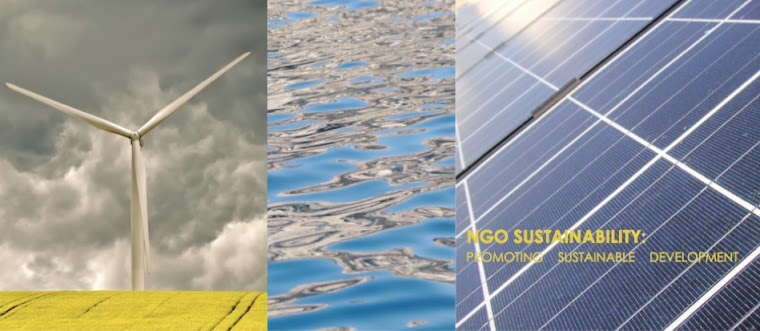Below please find several summaries for articles of interest and their corresponding links.
“Financial News We Would Love to See"
While the recent financial crisis already provoked many policy reforms, undesirable economic situations remain, which still require change. One reform many hope to see passed by Congress is a bipartisan energy bill, which would eliminate inefficient subsidies for ethanol production, remove import taxes on Caribbean cane ethanol, add a one dollar per gallon gas tax, mandate that all federal agencies use vehicles that run on natural gas and impose a carbon tax to encourage cleaner energy usage; however, this bill is unlikely to pass.
“Delicate Planet”
This article concluded that people are not united in their efforts to save the planet. The book, The View From Lazy Point by Carl Safina shows this interconnectedness of people and nature. The book calls on people to live a more environmentally considerable life in order to prevent human-caused environmental catastrophe.
“Siemens Invests in Expanding Wind Power”
Siemens’ hopes to become one of the top suppliers of the wind power equipment in the world. In order to succeed, the company needs to enter Chinese markets, the current largest wind power market in the world. Entering Chinese market poses a challenge to Simens, due to local government policies favoring Chinese companies.
"Muslim Women Gain Higher Profile in U.S."
Muslim-American women are redefining what it means to be Muslim, Middle-Eastern and American by breaking gender and racial stereotypes. Because American society makes it much easier for women to obtain leadership roles--at work, academically and socially--these women are achieving high levels of success, unmatched elsewhere. This article portrays several women’s achievements at maintaining both their Islamic culture within America and serving as exceptional examples of female leadership.
“China’s Push Into Wind Worries U.S. Industry”
Chinese-owned wind companies plan a “big push” into the American wind power industry in a few months. Already able to generate more wind power (43 gigawatts, enough to power over 10 million homes) than any U.S. company, China is rapidly becoming a world leader in the renewable energy sector. American sustainable energy proponents are debating on the impact this push will have on the American renewable energy sector. Some believe that because only 2 percent of America’s demand for electricity comes from wind power, Chinese businesses will not find success in the U.S.A. Others, alternatively, fear that the renewable/ sustainable energy sector will continue to fall into foreign hands, since Denmark, Germany, Japan and India already own the biggest clean energy companies in America. Some believe that new renewable energy companies, whether foreign or domestic, will create new jobs, which America’s economy desperately needs. Regardless of the differing opinions, it seems that Chinese investment into the U.S.’s sustainable energy sector will generate heated debates and perhaps significantly change.
“California Approves Stringent Pollution Curbs”
On Thursday, December 16, 2010, California regulators passed rules to curb emissions of greenhouse gases. The program will eventually cover 360 Californian businesses and lower emissions by 2 percent each year. Californians improved and expanded an “allowance and credit” system currently used by New York, New Jersey, Delaware, Maryland and several New England states (REGGI). Each business receives an allowance that their emissions must remain below. Alternatively, companies may buy allowance credits from other polluters to cover their excess emissions. Investor-owned utilities must auction their free allowances. Their auction proceeds either subsidize energy-efficient programs or are given to costumers in the form of rebates to balance any price increases they may experience due to the new rules.
"Green tech a priority for many state companies"
General Electric and other Connecticut corporations are taking faster track of changing their policies to reduce its greenhouse gas emissions. For example, ESPN follows and reports its emissions as to how much the company uses water and carbon dioxide. ESPN attempts to reduce their emission figures. In light of this, the U.S. Environmental Protection Agency wants companies that are emitting more than 25,000 tons of greenhouse gasses a year to report their emissions.
“Weather Monitoring Company Turns to Greenhouse Gases”
AWS Convergence Technologies of Maryland, one of the largest of weather monitoring companies, announced its proposal for “Earth Networks,” a plan which over the next five years will put a network of 100 greenhouse gas sensors around the globe. The main goal of the plan is to measure the density and level of greenhouse gas data in real-time measurements at the national and regional level, using a technique that combines actual atmospheric data with the real-time weather information.Source
“Save Energy, Save Our Troops”
In the past nine years, around 1,000 Americans have been killed on fuel-related missions in Iraq and Afghanistan. Thus, new energy efficient policies developed by the Defense Department would reduce the death toll, save billions of dollars, and allow the United States to be less dependent on foreign oil.



